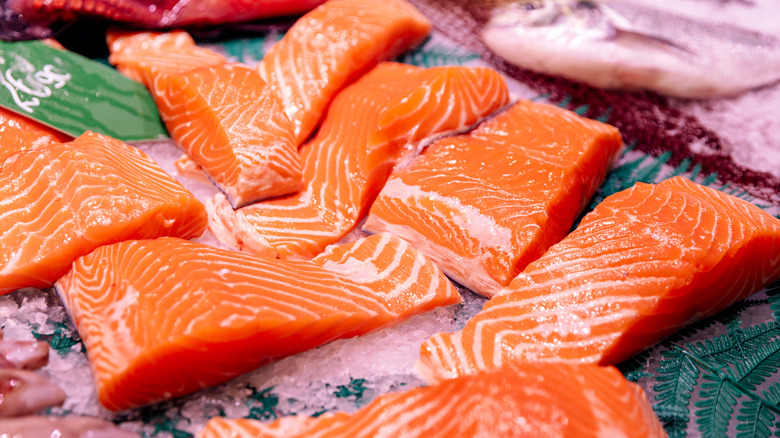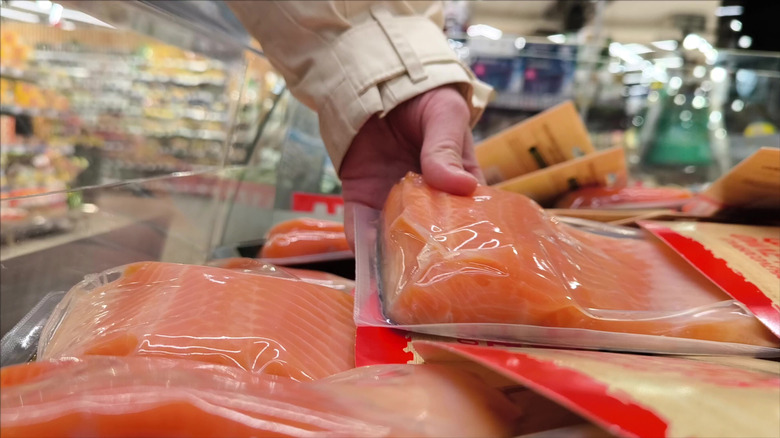The One Question You Should Ask The Butcher To Get Fresh Salmon At The Grocery Store
If you want to ensure you're grilling only the freshest of fish, you may first want to do a little grilling of a different kind by firing off questions at your supermarket's in-house butcher. It helps if you know just what to ask, though. In the case of salmon, you could inquire as to when the fish arrived in the store, but an even better question to ask would be when it was cut. Another way to phrase this, if you enjoy throwing around jargon to seem more salmon savvy, would be: "How long has this fish been off the knife?"
Before salmon is cut, it may be dry-aged for several days to several weeks, so the flesh can become a bit more firm and allow for a cleaner cut. Aging also helps to deepen the flavor. This means that the date the fish was caught or even delivered to the store isn't quite as relevant as when it went under the knife. This knowledge helps you determine a fish's freshness because cutting into it exposes the innards to oxygen and jump-starts spoilage. For the freshest-tasting salmon, you'll ideally want to purchase something sliced the same day.
How to find fresh fish if there's no butcher
The problem with relying on a butcher to help you choose a fresh fish at the supermarket is that not every store runs to such amenities. Bougie grocery chains like Sprouts and Whole Foods advertise on-staff meat cutters, but none of the mid-tier markets I've frequented over the past few years have offered anything other than pre-wrapped meat and fish. (I'm a frequent grocery shopper and have been just about everywhere but Sprouts and Whole Foods; though, admittedly, I seldom shop in really upscale neighborhoods.) If your supermarket is butcherless, you'll need to do some detective work to scout out the best salmon for sale.
Among the signs you should look for when buying salmon is a firm texture, since any mushiness indicates the fish may be going bad. Salmon should also have a bright orangish-pink (or salmon pink) color with no gray patches, brown spots, or white film. Needless to say, if you can smell the salmon through the packaging, it's not only less than fresh, it may even be unsafe to eat.
Counterintuitive though it may seem, the best way to get the freshest salmon might be to purchase it frozen. "Fresh" fish really isn't any better than the frozen kind, since salmon, especially wild-caught salmon, is often flash-frozen right on the boat. Even farmed salmon may have been frozen during transport, so "fresh" may actually translate to "thawed," no matter when it came off the knife. Salmon that was frozen just once and remains frozen at the time of purchase may therefore taste — and be — fresher than the kind that bears the "fresh" label. Cooking your salmon straight from frozen is also a quick and simple mid-week meal.

